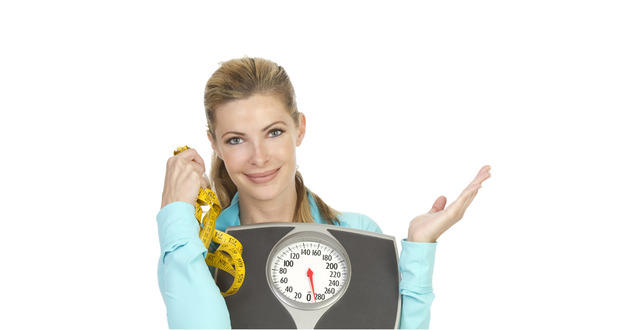How to Choose a Diet
It seems like every few years a new diet grabs headlines and calls itself a weight-loss miracle. First it was fat-free everything. Oil was evil, and bagels, plain pasta, and salads with a squirt of lemon juice were all the rage. Next, high-protein diets hit the scene. Meat reigned supreme and a bun on your burger was dietary suicide. Mediterranean, 40/30/30, vegan — all have had their place at the head of the table.
A 2008 breakthrough study in The New England Journal of Medicine provided key comparisons and offered great insight into the most popular plans. Researchers found that after two years, obese subjects on a low-fat diet had lost just 7 pounds on average. Those on a Mediterranean diet, characterized by high levels of healthy fats, fruits, and vegetables, lost about 10 pounds, and those on a low-carb diet lost the most weight, about 12 pounds. Researchers also found that a low-fat diet conferred the fewest overall health benefits. Mediterranean diet subjects were most likely to have improvements in blood sugar levels, and low-carb followers boasted the most improvement in cholesterol levels. However, all of the diets were successful to one extent or another, and the study failed to look at how sustainable the diets were. Sustainability is a critical determinant of overall success rate.
When it comes to choosing the right plan for you, be sure to discuss all of your options with your doctor. In order to help you get started, here are some of the most common plans.
Low-Carbohydrate and High-Protein Plans
Cardiologist Robert C. Atkins started the low-carb craze in the 1970s. The Atkins Diet limits carbs while emphasizing protein and fats. Followers cycle through phases during which they eat between 20 and 100 grams of carbohydrates a day. The Institute of Medicine recommends that we eat 225 to 325 grams of carbohydrates per day.
The South Beach Diet is another popular low-carb weight-loss program, which cardiologist Arthur Agatston created in 2003. In this plan, dieters should get about one-third of their daily calories from carbs.
Due to the fact that many fruits and starchy vegetables are high in carbohydrates, low-carb diets typically shun them along with bread, grains, beans, potatoes, and rice. Sugar is also severely restricted. A typical menu might include a cheese omelet cooked in butter, a wrap consisting of deli meat, cheese, and mustard wrapped in lettuce, or a big spinach salad topped with chicken or steak, goat cheese, mushrooms, and full-fat salad dressing.
How can you lose weight eating steak and eggs? The theory behind low-carb diets is that a reduction in carbs leads to lower insulin levels, which causes the body to burn stored fat for energy. Many people will lose weight on a low-carb diet. At first, this is due to water loss. Low-carb and high-protein foods often have a diuretic effect. Also, since you’re eating large amounts of fat and protein you will feel full longer. As with any diet that eliminates or greatly restricts an entire food group, you’ll likely take in fewer calories.
That said, it can be hard to live without fruit, grains, or sugar. Many people find they lack energy, and their workouts and daily alertness suffer as a result. According to the Mayo Clinic, replacing carbs with protein sources that are high in saturated fat and cholesterol may increase your risk of heart disease and certain forms of cancer. Limiting fiber-rich produce and whole-grain foods can lead to constipation and other digestive problems. Lastly, because low-carb diets force your body into a state where your body burns its own fat for fuel (ketosis), you may struggle with symptoms such as weakness, nausea, dehydration, dizziness, and irritability.
American Heart Association Plan
Looking to slim down while also lowering your risk of heart attack and stroke? The American Heart Association (AHA) diet is a low-fat plan that targets high cholesterol, blood pressure, and body weight. The diet promotes overall healthy living via clean eating and physical activity. The guidelines include:
- five servings of fruits and veggies per day
- six servings of grains per day
- two servings of fish per week, preferably fatty fish such as salmon and tuna
- reduced-fat dairy products, beans, skinless poultry, and lean meats
- fats with no more than 2 grams of saturated fat per tablespoon, such as liquid and tub margarine, and canola, corn, safflower, and olive oils
- 30 minutes of physical activity every day
- Use up at least as many calories as you take in every day. Ideally, try to lower your overall calorie intake by reducing calories you eat or by raising the amount you burn. Limit high-calorie, low-nutrition foods such as soft drinks and candy, as well as foods high in saturated fat, trans fat, and cholesterol.
- Keep sodium intake at or below 2,400 milligrams, or 1¼ teaspoon, per day.
- Limit alcoholic beverages to no more than two drinks per day for men and one drink per day for women.
If you decide to follow the AHA plan, look for items with a heart and a white check mark at your grocery store. This logo means the item is AHA-approved for healthy people over the age of 2. However, this plan generally will have you shopping the perimeter of your grocery store. That’s where produce, lean meats, and dairy are typically stored. Packaged foods and snacks are in the middle aisles.
Mediterranean-Style Plans
The traditional eating patterns of Greece, the south of France, Italy, and Turkey (the Mediterranean) are full of antioxidant-rich fruits and veggies. Whole grains replace refined white bread, and heart-healthy olive oil is the primary fat. And it’s all washed down with a glass of merlot.
For more than 60 years, research has repeatedly confirmed this diet’s ability to lower adults’ risk for cancer, heart disease, and even Alzheimer’s disease. One long-term study that followed healthy men and women aged 70 to 90 found that eating Mediterranean style as part of a healthy lifestyle was linked with a more than 50 percent lower rate of death from all causes.
With around 40 percent of its calories coming from healthy fats, this diet is extremely satisfying. It leaves you less likely to binge on high-carb or high-calorie foods. Harvard University researchers have discovered that people on a 1,500-calorie-per-day Mediterranean diet lost more weight than those on a lower-fat (20 percent) diet. In fact, some of those on the lower fat diet actually gained weight.
The high fiber content of this diet may also benefit diabetics by slowing spikes in blood sugar. In a 2008 British Medical Journal study of 13,000 people, those who ate more of a traditional Mediterranean diet were 83 percent less likely to develop type 2 diabetes.
If you choose to follow a Mediterranean diet, you’ll enjoy fatty fish such as wild salmon and mackerel. You will also eat more olive oil, nuts, fruits, vegetables, and you can also enjoy wine.
Vegetarian Plans
Just as it sounds, a vegetarian diet restricts animal sources of protein and relies on produce, grains, beans, nuts, and low-fat or fat-free dairy. There are three basic categories of vegetarians.
- Lacto-vegetarians prohibit meat, fish, poultry, and eggs, but drink milk.
- Lacto-ovo vegetarians prohibit meat, fish, and poultry, but eat eggs and drink milk.
- Vegans eliminate all animal products such as those listed above.
Research has shown that vegetarians tend to eat fewer calories and less fat than their meat-eating counterparts. As a result, they tend to have lower body weights than non-vegetarians of similar heights. They reap numerous health benefits as well. A 2009 study published in the American Journal of Clinical Nutrition suggested that vegetarians have lower rates of heart disease, obesity, and cancer, as well as probable lower rates of high blood pressure and diabetes.
Despite the health benefits, switching to a vegetarian diet does not guarantee weight loss. Many meat-free foods can be high in fat, including cheese, whole milk, and nuts. You may want to meet with a nutritionist to ensure your calorie and protein needs are met. Including protein-rich foods is a must, especially because this nutrient keeps you feeling satisfied. It can curb your appetite and help you resist the urge to snack.
Smart low-fat protein sources include:
- egg whites
- nuts
- beans
- low-fat cheese
- reduced-fat peanut butter
- soy products
Vegan diets eliminate food sources of rich in vitamin B12 along with dairy products, so you’ll need B12 and calcium supplements if you choose this plan.
Learning how to use healthy meat substitutes can help you thrive on a vegetarian diet. For example, prepare your award-winning chili with black beans and squash instead of ground beef. Instead of ordering eggs Benedict at brunch, try an egg white omelet with spinach, basil, and tomato. You’ll also benefit from branching out when dining out. Try Indian food (lentil dal or spicy chickpeas with spinach), Chinese food (veggie stir-fry and steamed brown rice), Japanese food (veggie sushi, miso soup, and edamame), and vegetarian restaurants.
Not ready to go full-throttle vegetarian? You’re not alone. Many people find it hard to stick with a strict diet that eliminates any entire food group. In response, more and more people are adopting a “flexitarian" — or part-time vegetarian — lifestyle.
What’s Right For You?
These and countless other dieting approaches are popular and well publicized. Finding the right approach for your lifestyle should include educating yourself about the diet plans and how they would fit into your life. Each has potential benefits and possible downfalls. Being aware of these in advance will increase your chances of long-term success.
-
Fitness Plan Day 187: Rejuvenate yourself with a cup of green tea in the morning
-
4 things you must do after a workout
-
Fitness guru Mickey Mehta seeks to make Mumbai’s cops fitter
-
Here’s how salt is making you fat!
-
In your 50s? Follow these weight loss tips
Disc
-
How to prevent skin sagging after weight loss
- DON'T MISS
- How to lose weight
- How to lose weight living in a hostel? (Diet query of the day)
- 5 best exercises for flat abs
- 8 vegetables that will help you lose weight
- Home remedy for weight loss – Wheatgrass juice
- Can fat people do yoga? (Query)
- Why climbing stairs is better than walking for weight loss
- Bariatric Surgery
- Isha Sharvani – what keeps her so fit and agile?
- Five colours to pile on your plate




